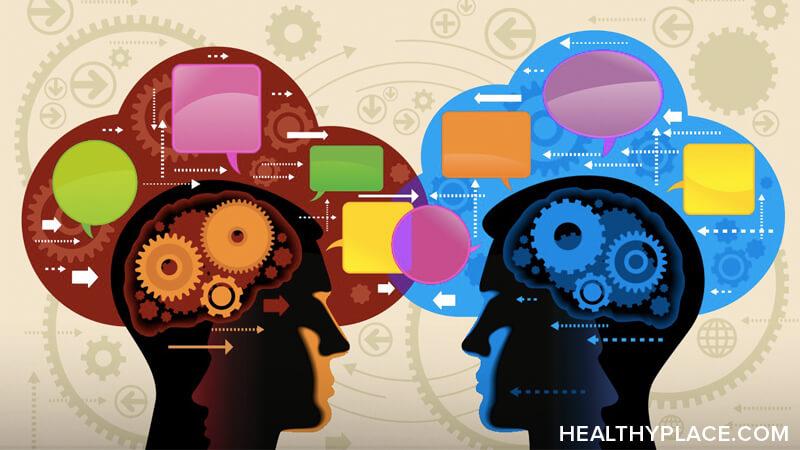Is Too Much Information, TMI, Making Us Unhappy?

How do you feel about having too much information (TMI)? The ease with which we can communicate and learn in our world of ever-developing technology is astounding. At any time of day, virtually limitless information and entertainment are accessible at the touch of a button. But is having boundless knowledge so readily available a good thing, or is TMI making us unhappy?
Is TMI, Too Much Information, a Good Thing?
In today's rapidly evolving technological environment, unrestricted Internet access has transformed life far beyond what was conceivable just a few decades ago. We can access knowledge, entertainment, and communication immediately with only a smartphone or a computer. This abundance of information enables us to stay up-to-date, make informed decisions, and connect with others across the globe. We can learn about any topic of interest, explore new cultures, and access resources previously unavailable outside university libraries. However, amid this wealth of information lies the potential for input overload. Could there be a risk that the constant stream of TMI coming at us also poses undesirable consequences for our mental wellbeing?
Problems Associated with TMI
My biggest issue with TMI is the sense of being constantly bombarded. With so many options, how do we decide what to invest our time in reading, watching, or listening to? How do we filter the meaningful information from the worthless? Focusing on important tasks can be challenging amidst constant notifications and distractions, and the pressure to keep up with endless news streams, social media updates, and online content can be mentally taxing. Excessive use can fuel feelings of addiction, anxiety, depression, isolation, and the fear of missing out (FOMO).1
Unrestricted information sharing on the Internet and social media can reinforce confirmation bias, leading to echo chambers and filter bubbles. Echo chambers arise because powerful social media algorithms ensure we only see content that fits our preferences, creating tailored media experiences that eliminate opposing viewpoints and differing voices.2 Filter bubbles work similarly, where social media sites may hide posts from people with different perspectives, or a news site may only display articles it thinks we'll agree with.3
So, while it may look like we're getting the same content as everyone else, algorithms are tailoring everything we see to match our preferences. We only encounter information or opinions that reflect and reinforce our own, and we only see content based on what the social media companies think we'll like. It's easy to see the potential for polarizing opinions, enforcing one-sided views, and deterring critical thinking.
TMI and Our Happiness
Staying vigilant in this digital landscape may add to the stress of managing our online lives. How can we effectively balance the advantages of easy access to information while avoiding the pitfalls of TMI? One step is recognizing when information consumption overwhelms us and consciously taking a break. Setting limits for our online activities and diversifying our sources of information may help reduce the effects of confirmation bias. By fact-checking, cross-referencing sources, and seeking different perspectives, we can better prepare ourselves to make well-informed decisions.
Living in an age of unparalleled convenience and information accessibility brings virtually limitless opportunities and challenges. While abundant information enhances our lives in numerous ways, TMI can lead to stress, anxiety, and a loss of genuine connection. We can become trapped in a bubble of like-minded perspectives that only reinforce existing beliefs and cause us to disregard opposing viewpoints. Critical thinking can help us avoid these pitfalls and harness the benefits of today's technology while safeguarding our mental wellbeing and happiness.
Sources
- Robinson, L. et al., (2023, March 29). Social Media and Mental Health. HelpGuide.org. https://www.helpguide.org/articles/mental-health/social-media-and-mental-health.htm
- Seneca, C. (2020, September 17). How to Break Out of Your Social Media Echo Chamber. WIRED. https://www.wired.com/story/facebook-twitter-echo-chamber-confirmation-bias/
- GCFGlobal.org. (n.d.). Digital Media Literacy: How Filter Bubbles Isolate You. Retrieved August 29, 2023, from https://edu.gcfglobal.org/en/digital-media-literacy/how-filter-bubbles-isolate-you/1/
APA Reference
Brocklebank, M.
(2023, September 4). Is Too Much Information, TMI, Making Us Unhappy?, HealthyPlace. Retrieved
on 2026, March 5 from https://www.healthyplace.com/blogs/livingablissfullife/2023/9/is-too-much-information-tmi-making-us-unhappy
